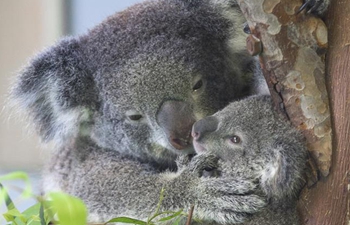SYDNEY, Aug. 22 (Xinhua) -- Australian native mammals are able to recognize introduced predators as a danger, new research has shown.
Scientists at Sydney University (SU), released a meta-analysis study on Wednesday, which attempts to explain why local fauna face such an extreme threat from feral predators such as foxes, cats and dogs.
"We're looking at the idea whether or not Australian Mammals are naive, or essentially fearless towards these introduced predators," study author Dr. Peter Banks told Xinhua.
"We've got the world's worst extinction record with 29 species of mammals going from the mainland of Australia, and these introduced species are largely to blame."
In some parts of the world, native species of animal are unable to recognize danger posed by a non-native predator and will fail to preserve themselves by running away or hiding.
"The dodo, went extinct when humans came onto the island and the dodos just didn't recognize them and humans were able to just club them to death," Banks said.
"Likewise on islands in the Atlantic, mice eat albatross alive because the albatross just don't know what to do about them."
However, research shows that all of Australia's native mammals that were tested were able to recognize foxes, cats and dogs as a threat and consistently change their behavior.
To achieve this result, Banks' research looked at 94 different previous studies to establish an overall picture of animal reactions to predators.
"Some of the studies were things like wallabies in enclosed areas and they would wheel out a stuffed cat to see whether the animals would respond," Banks said.
"Other ones were small mammals like rats or bandicoots out in the wild and they would put out fox odour, or cat odour or play the calls of dogs."
Surprisingly to experts, the animals showed fear responses such as stress, heightened awareness or eating less when faced with these predatory cues.
This may be explained by the fact that species which didn't have these instinctive responses have gone extinct, said Banks.
"The ones that were left behind were somehow preadapted or otherwise worked out, either through learning or through evolution to recognize these predators as dangerous."
The problem remains, however, even after a threat is recognized, can the vulnerable local wildlife act fast or smart enough to save themselves, and their species.













